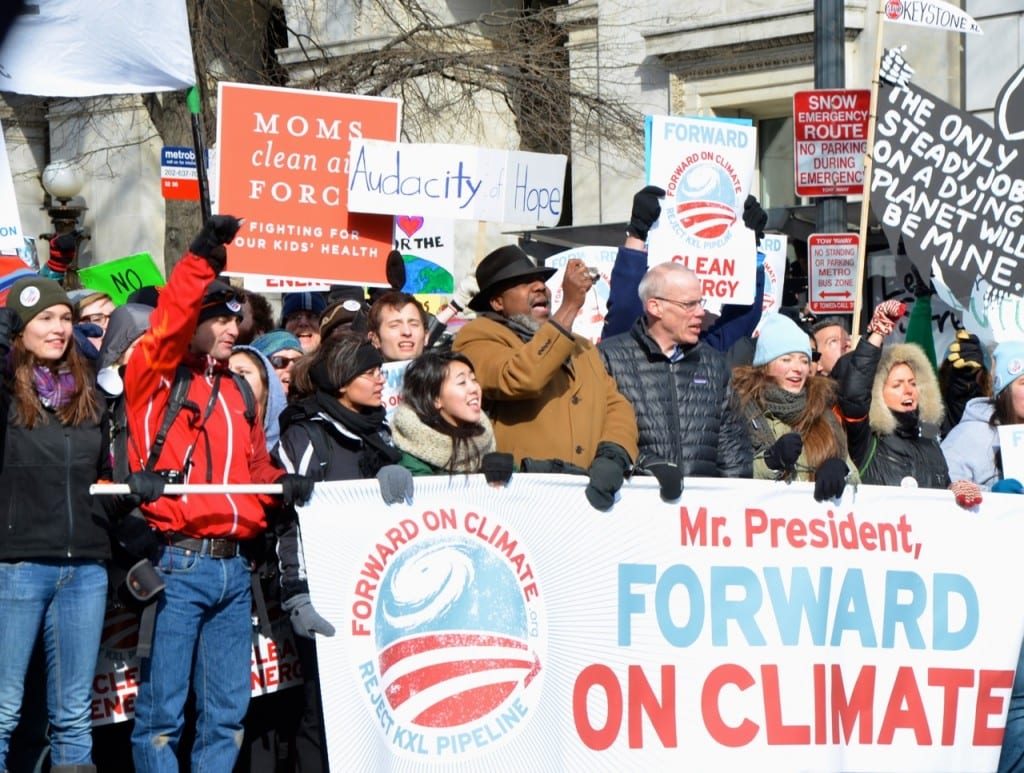There is little doubt this is caused by political rhetoric and media coverage –
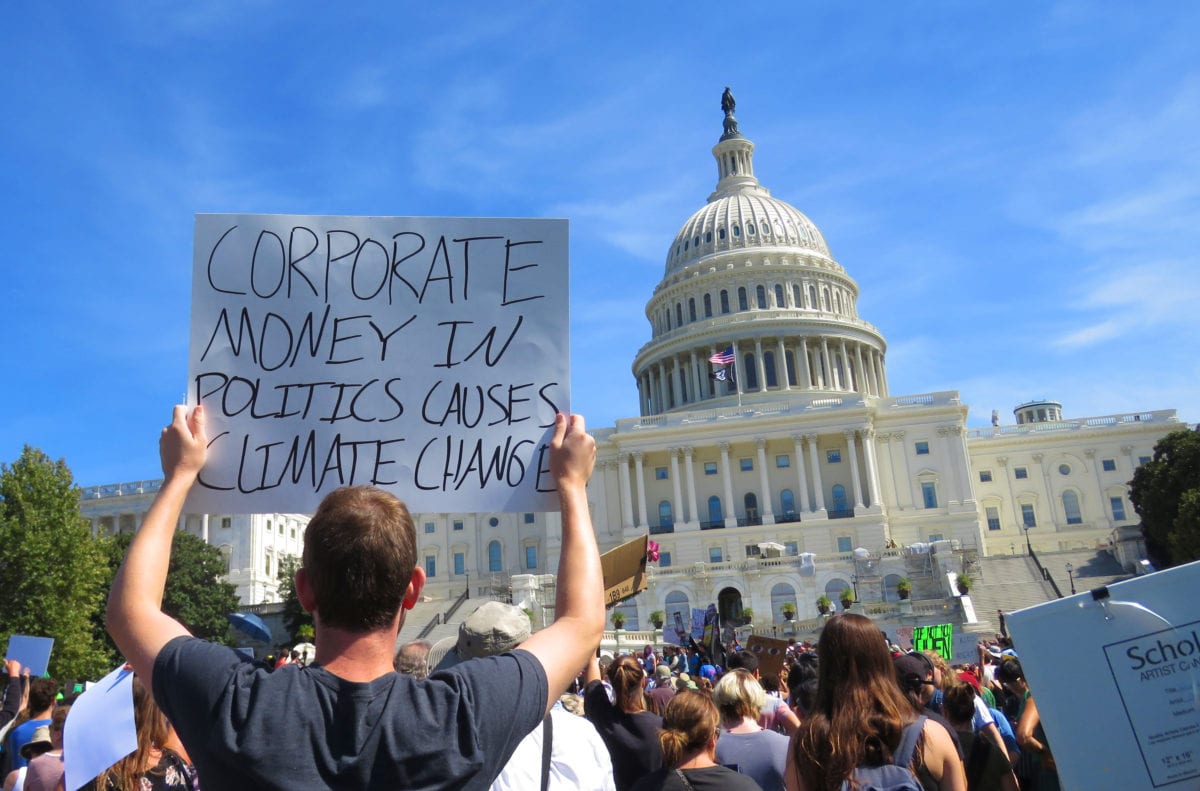
Environmental activists protest for action on climate change on the U.S. Capitol grounds in Washington, D.C.: Glynn Wilson
By Glynn Wilson –
WASHINGTON, D.C. — If there are any communications scholars out there still trying to figure out how to accurately measure political and media influence on public opinion, look no further than a new survey out from the Pew Research Center that shows how American attitudes on global warming and climate change differ from other countries.
Americans are less concerned – but more divided – on climate change than people elsewhere
As the next United Nations Climate Change Conference approaches set for November in Glasgow, Scotland, public opinion surveys show that people in advanced economies around the world are highly concerned about the personal impact of climate change and many say they are willing to make changes to address the issue with personal and international action.
Americans are also worried about the personal impacts of climate change, surveys show, but they are not as concerned as other publics surveyed, according to Pew.
“There is minimal praise from other societies for how the United States and China – both leading carbon dioxide emitters – are handling climate change, even as the European Union and the UN are given high marks for their actions,” researchers say. “But within American society, there are sharp ideological divides on the issue, more so than in other nations.”
There is little doubt that this political divide — much like the divide on the efficacy of coronavirus vaccines and wearing masks — is the direct result of doubts being raised by pro-Big Business conservative Republican politicians, mostly notably the former president of the United States, Donald Trump, and right-wing Capitalist news outlets, such as Fox News, conservative talk radio and online news sites such as Breitbart News, and their social media arms.
The White House has long been recognized as a “bully pulpit” where the public agenda can be set and public attitudes and behavior manipulated, for good or ill. And previous research has shown that the amount of news coverage on an issue, the play of the coverage and the framing of coverage also have an impact on public opinion.
Master’s Thesis: Public Attitudes and Press Coverage of the Environment, 1968-1996
There is some talk about delaying the summit, which has already been delayed once because of the coronavirus pandemic. But John Kerry, the United States envoy for climate change, said Monday that postponing it would be a “huge, huge mistake.”
“The show must go on,” Mr. Kerry said. “There is no reason to delay in this world of vaccines and social distancing … any delay will allow nations to backtrack, to backpedal, maybe renege on a commitment. We don’t have time to mess around with reconvening. The world needs to get cooking on this.”
The Pew surveys show that a smaller share of U.S. adults are concerned about the personal impacts of climate change than people in other advanced economies, as surveyed in the spring of 2021 anyway, before reporting on all the climate related disasters of the summer, including massive droughts and wildfires in the American West, and devastating hurricanes and floods in the South.
Six-in-ten U.S. adults say that they are concerned that global climate change will harm them personally, compared with a median of 72 percent who say the same across the 17 publics around the world.
Seventy-four percent of Americans say they are willing to make a lot or some changes in their lifestyles to deal with climate change, but the number is closer to 80 percent in many other countries.
When it comes to rating their own society’s role in dealing with climate change, Americans are slightly less likely than people elsewhere to say their own government is handling it well, Pew reports.
But there are similar levels of confidence among Americans and their counterparts abroad about the international community’s ability to deal with the climate crisis
While a third of Americans say that actions taken internationally to combat climate change, like the Paris climate agreement, will harm the economy, about a third say these actions will benefit it and around a third say there will be no impact.
But it is not surprising that Americans are the most likely of people anywhere to say international actions such as the Paris climate accord will harm the economy, since it was bashed repeatedly by Trump and other Republicans across media platforms for years.
President Joe Biden rejoined the climate accords early in his presidency and started talking about it, and the mainstream media and more intellectually honest web press has covered the problem of global warming and climate change as real threats for years. The doubt about it has been raised solely by Republicans on the campaign trail and right-wing media, which profit from fake news and false conspiracy theories also shared far and wide on social media.
Americans are more positive on the United States’ track record on climate change than people in the other advanced economies surveyed, however.
A median of 36 percent across the 17 societies surveyed say the U.S. is doing a good job of dealing with climate change, compared with the 47 percent of Americans who say the same thing, which is also no doubt the result of political rhetoric and media coverage.
Americans are much closer to the rest of the world on how they rate the actions of the EU, the UN and China on their climate actions. In general, more Americans than not say that the EU and the UN are doing a good job dealing with the climate issue, and most in the other publics surveyed agree.
However, only 18 percent of Americans and people in advanced economies say that China is doing a good job of dealing with climate change.
“U.S. adults on different sides of the ideological spectrum are often sharply divided in their views of how different countries and international actors are responding to climate change,” Pew researchers say. “The ideological difference is most stark when evaluating how the U.S. is handling climate change.”
But when contacted directly and asked about political and media influence on public opinion, one researcher declined to comment.
“Thank you for reaching out. Unfortunately, these questions are outside the scope of what our researchers would be able to answer,” said Vicky Semaski of the Pew Research Center in an email response.
“This survey looked at global views of climate and concerns more generally, and didn’t ask about influences on U.S. public opinion. Our experts can only speak to data found in our reports, so they wouldn’t be able to offer commentary or discuss possible implications.”
But the story on the Pew website specifically talks about the differences in public opinion in the U.S. and other countries. It just says nothing about WHY there might be differences, and has no discussion of political rhetoric or analysis of media coverage in the U.S. that might be the cause of the differences and the political divide.
They did report that 67 percent of conservatives in the U.S. say the country is doing a good job, and only 26 percent of liberals agree.
“This is the largest ideological difference among all the countries surveyed and much larger than the median difference across the 14 countries where there are comparable ideological categories,” Pew researchers conclude.
But again, this research was conducted before the Biden administration had a chance to put forward its policy agenda to deal with climate change this summer.
“However, on China, the ideological differences are virtually nonexistent, both in the U.S. and around the world.”
Virtually all of the political commentary and media coverage of China have focused on the pollution in that developing country, so this should come as no surprise to researchers who claim to know what they are talking about.
“U.S. conservatives are less enthusiastic about how the EU and the UN are responding to climate change than liberals,” Pew says in its overly simplistic analysis.
“Conservatives are 18 percentage points less likely than U.S. adults on the left to say the EU is doing a good job responding to climate change, and 22 points less likely to say the UN is doing a good job. In comparison, adults on either side of the ideological spectrum in other countries generally give both international organizations similarly positive ratings.”
Well, duh.
Conservative, Republican politicians constantly bash the U.N and the E.U, none more prominently than Trump, and not just in a campaign for public office. He used the bully pulpit of the White House to push this false message, just as he used his position to call the coronavirus pandemic a “hoax” and make fun of people who wore masks, and just as he used his position as president and commander-in-chief to promote the so-called “Big Lie” about the 2020 election being stolen, and inciting a violent insurrection that involved many police officers and military personnel.
Confidence in the international community to reduce the effects of climate change is divided sharply along partisan lines in the U.S., Pew shows, without a shred of analysis about the reasons.
“Democrats and independents who lean toward the Democratic Party are more likely than Republicans and GOP leaners to express confidence that actions taken by the international community will significantly reduce the effects of global climate change,” Pew reports. “While 45 percent of the U.S. public holds this view, roughly two-thirds (65%) of Democrats say they are very or somewhat confident in international action. Similar shares of both liberal Democrats and their conservative and moderate counterparts hold this view.”
In comparison, just 23 percent of Republicans are confident the international community’s actions will reduce the effects of climate change. About four-in-ten moderate and liberal Republicans say they are confident in international action, while just 14 percent of conservative Republicans say the same.
“Similarly, Democrats are more likely than Republicans to say that international actions such as the Paris climate agreement will mostly benefit the American economy (50% vs. 11%, respectively). Republicans are more likely than Democrats to say the opposite: that international action to address climate change will mostly harm the domestic economy (63% vs. 11%, respectively).”
There is no doubt that the partisan divide on this issue, like other issues, is the result of political rhetoric reported far and wide in the news media and shared on social media.
Media coverage of the Pew research suffers from the same naïveté as the research itself.
See The Washington Post‘s recent coverage of the research.
People around the world increasingly see climate change as a personal threat, new poll finds
More Stock Photos
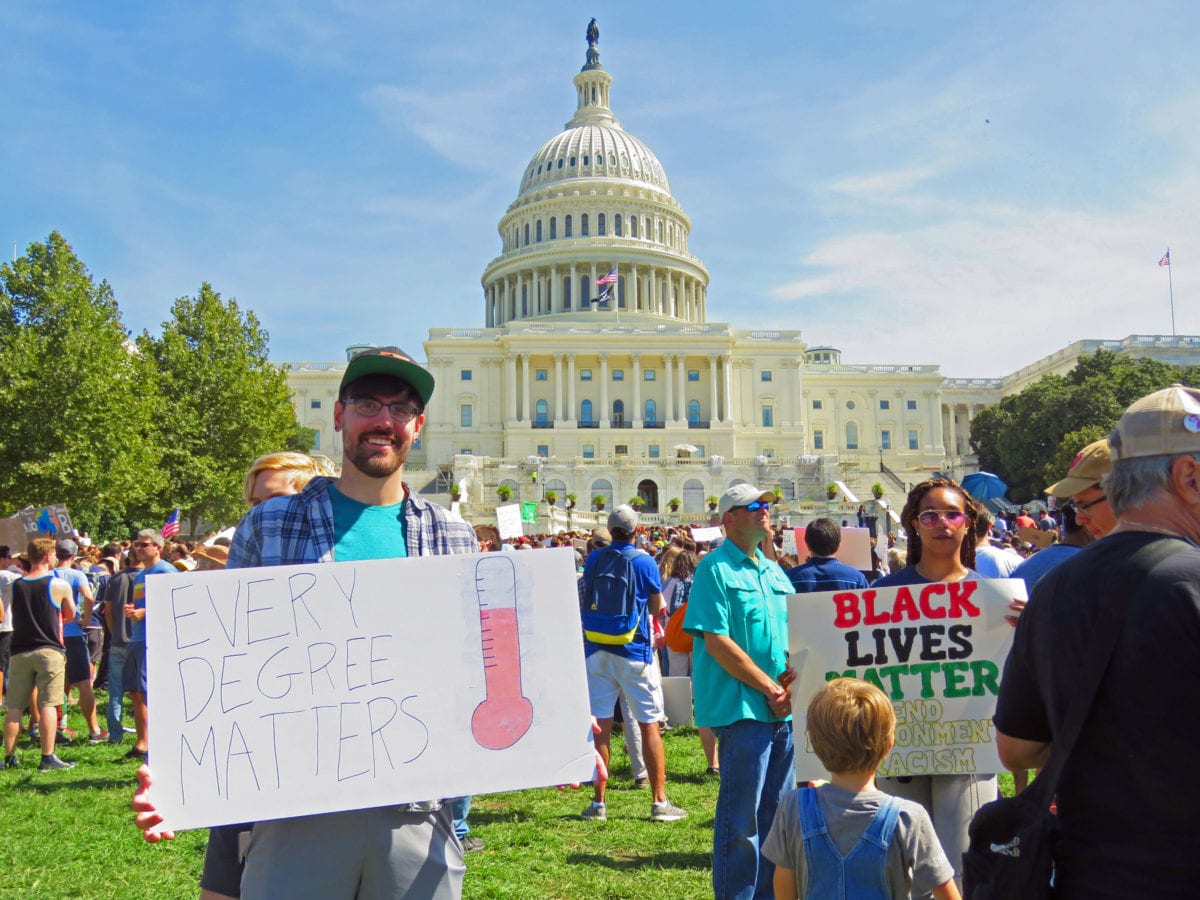
Environmental activists protest for action on climate change on the U.S. Capitol grounds in Washington, D.C.: Glynn Wilson
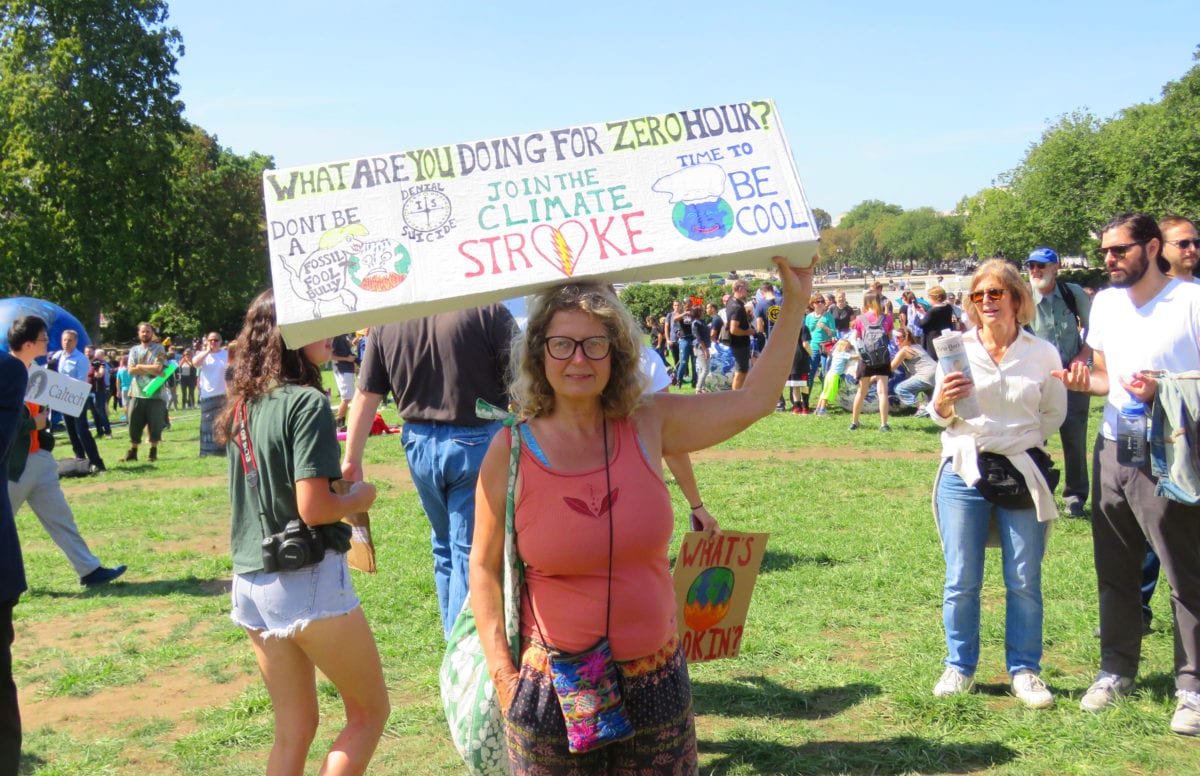
Environmental activists protest for action on climate change on the U.S. Capitol grounds in Washington, D.C.: Glynn Wilson
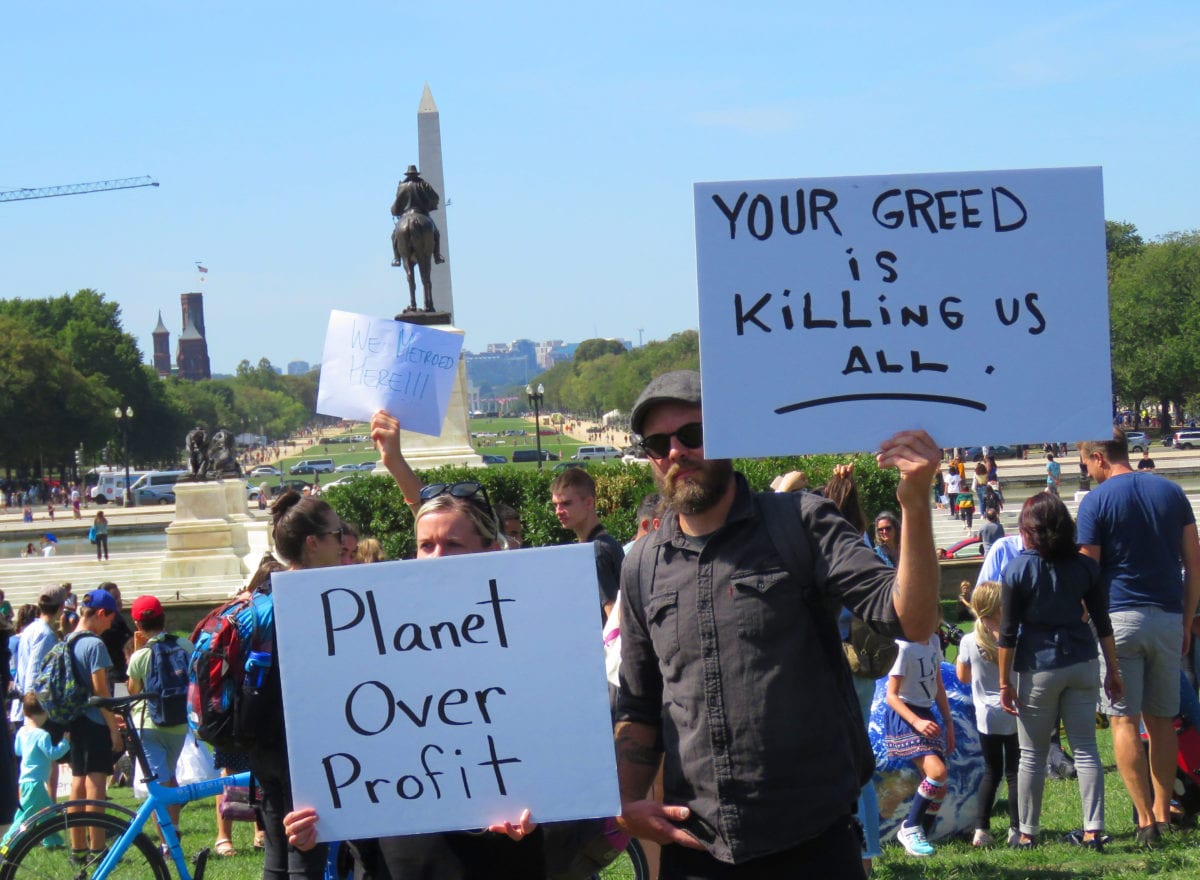
Environmental activists protest for action on climate change on the U.S. Capitol grounds in Washington, D.C.: Glynn Wilson
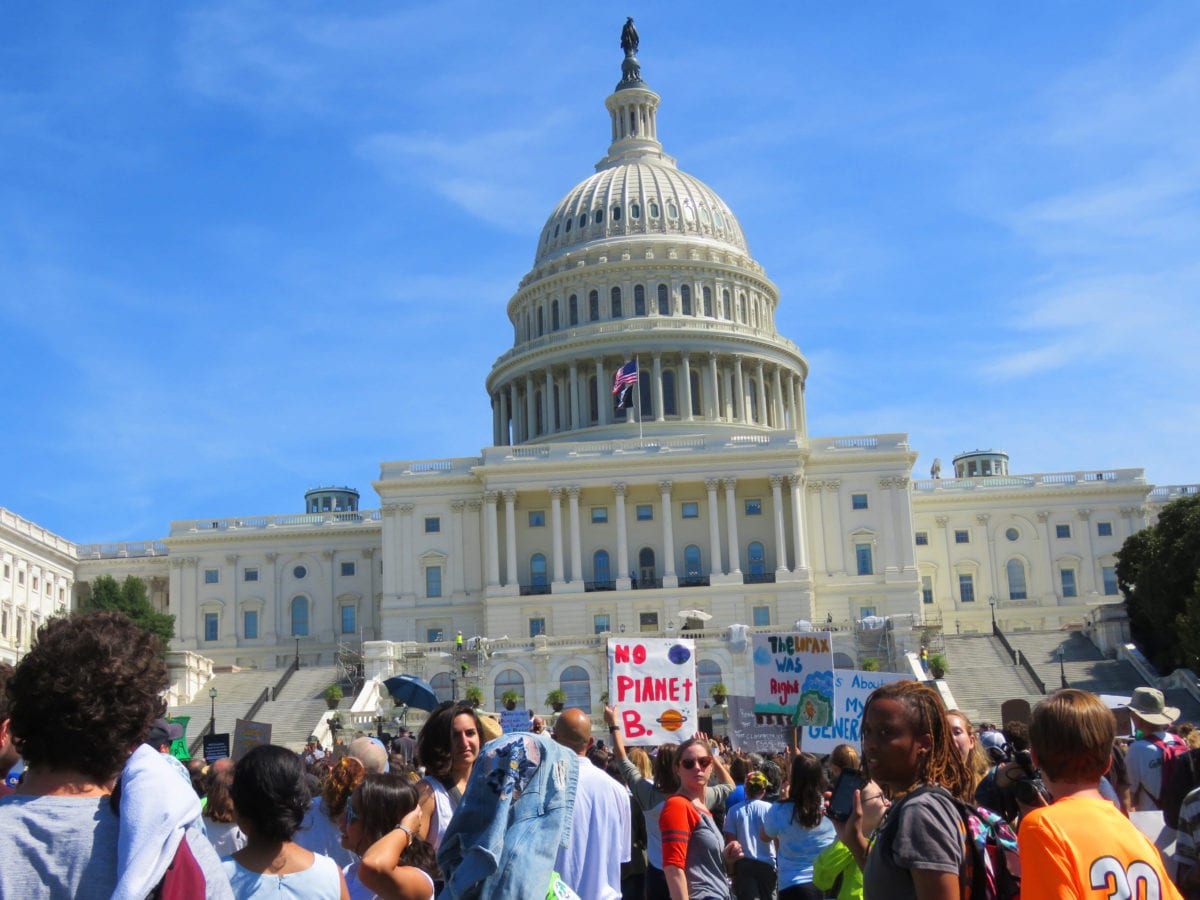
Environmental activists protest for action on climate change on the U.S. Capitol grounds in Washington, D.C.: Glynn Wilson
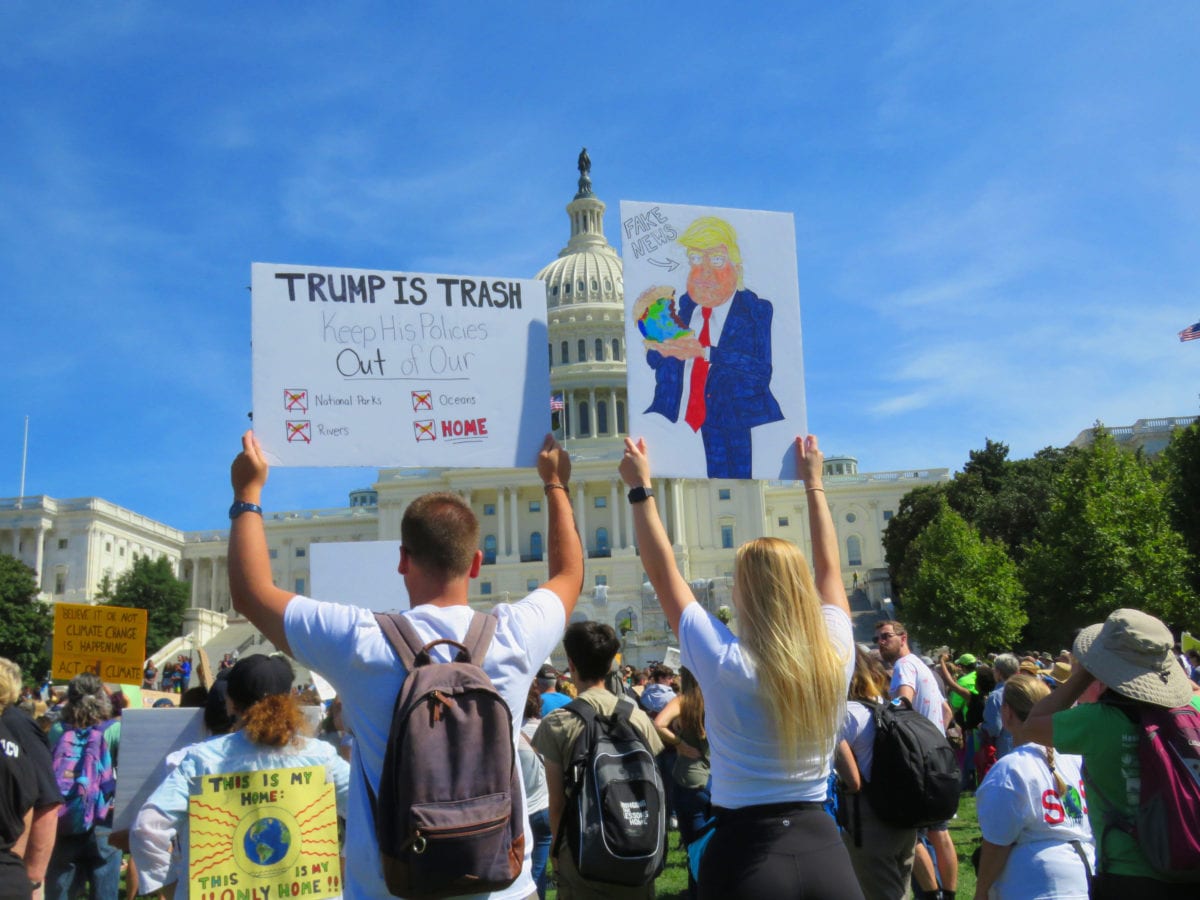
Environmental activists protest for action on climate change on the U.S. Capitol grounds in Washington, D.C.: Glynn Wilson
___
If you support truth in reporting, and fearless writing, consider making a contribution today with GoFundMe or PayPal.


